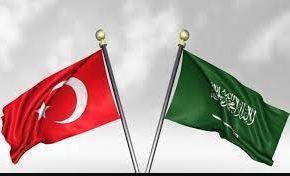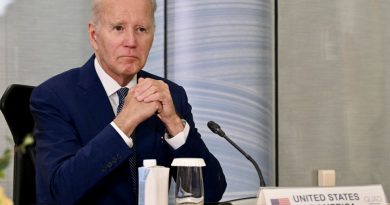OPINION: Why Egyptians Are Pessimistic About the New IMF Loan?
The current IMF leadership is way more rigid than the previous IMF leadership of Christine Lagarde in terms of applying the loan-attached conditions of state policy and structural reform.
The contradicting positions of the Egyptian public towards the current and the previous loans received from the International Monetary Fund (IMF) are particularly interesting. When the Egyptian government announced the pursuit of a loan from the IMF in 2016, most Egyptians applauded the decision and vowed to stand behind the political leadership to complete the comprehensive economic reform program attached to the loan. In contrast, the Egyptian public is skeptical and pessimistic about the new IMF loan approved last month. What has changed?
The political leadership of President El-Sisi is the same recipient and moderator of the former IMF loan. The people who supported the loan conditions in 2016 are the same ones who are irritated by the current loan conditions, despite their seeking to achieve the same economic reform goals. However, the only factor that has changed from 2016 to 2023 is the perspective and priorities of the IMF leadership toward the importance of national development projects. That, in particular, is what is making Egyptians feel insecure this time.
The current IMF leadership is way more rigid than the previous IMF leadership of Christine Lagarde in terms of applying the loan-attached conditions of state policy and structural reform. From a compassionate and understanding position, Lagarde gave the priority to directing the Egyptian government to make tangible progress on the social development agenda. However, the current IMF leadership is giving the ultimate priority to fast-forwarding the market liberation process even if it happens at the expense of slowing down the national development projects and crushing the middle class.
In 2016, the Egyptian government received an IMF loan of $12 billion over three years through the IMF’s Extended Fund Facility. The loan and the linked technical support program provided a tremendous buffer for the Egyptian economy against the challenges of the reform program, especially those related to the first shocks of inflation and the floating of local currency. When the COVID-19 pandemic broke out in 2020, the IMF intervened with two additional financial support instruments to support the Egyptian economy against the consequences of the pandemic. In May 2020, Egypt received US$2.8 billion in emergency financial assistance through the IMF’s Rapid Financing Instrument. Then, in June 2020, the IMF’s Standby Arrangement availed US$5.4 billion for Egypt to withdraw over a period of twelve months.
Thanks to the success of the IMF’s technical support program, Egyptians started to report tangible improvements in their living conditions and greater flexibility in their microeconomic decision-making in the first months of 2022. Around the same dates, Egypt was reaffirmed by the three Credit Rating agencies (Fitch, Moody’s, and S&P Global) at B and B+ with a stable outlook. In December 2021, an IMF report expected that Egypt, by the end of 2022, will become the second largest economy in Africa, after Nigeria, and the second largest economy in all Arab countries, after Saudi Arabia, with a record Growth Domestic Product (GDP) that exceeds US$438 billion. And, then, Russia’s President Putin decided to invade Ukraine!
When the effects of the Russia-Ukraine war started to reflect on the Egyptian economy, the first instinct of the Egyptian government was to knock on the doors of the IMF once more. After almost a year of negotiations between Egyptian government officials and IMF executives, a sudden cabinet reshuffle, and a change in the leadership of the Central Bank of Egypt, the IMF finally approved a small loan of three billion dollars to Egypt in mid-December. The small loan will be paid to the Egyptian government in installments over a long period of 46 months and may be frozen or completely withdrawn if the Egyptian government does not show steadfast progress on the list of harsh conditions.
The list of macroeconomic reform policies that the Egyptian government approved and committed itself to them, in order to receive the $3 billion IMF loan include but are not limited to: floating the Egyptian pound against the US dollar, removing subsidies on oil and gas to match international prices, slowing down the mega infrastructure and social development projects, accelerating and widening the process of collecting taxes, selling state-owned assets to private investors, and listing military-owned enterprises at the stocks market (The Egyptian Exchange).
The middle class is the core of the Egyptian economy. Despite that, the middle class is the citizen group most concerned about the consequences of the IMF loan conditions on their lifestyle and standard of living. Such conditions are expected to downgrade their purchasing power and thus curtail their ability to provide for themselves the basic services that the government is not offering them, such as quality health care and subsidized food and energy products.
Egypt is the second largest lender of the International Monetary Fund, although the Egyptian public has an unpleasant history with IMF loans. The loans saved consecutive governments, since the 1960s, from collapsing under chronic economic crises. Yet, on the flip side, the policy conditions attached to these loans have always been a nightmare for middle-class citizens. The only exception was the IMF loan supervised by Christine Lagarde in 2016. It magically helped the Egyptian government to transform the miserable socio-economic circumstances and brought hope to the hearts of the Egyptian people, especially the poor. However, these important gains are at great risk now, as the Egyptian government is trying to adapt to the strict conditions of the new IMF loan, despite being much smaller in size and more rigid in making conditions.
Article first published in Sada El-Belad.
Disclaimer: Views expressed by writers in this section are their own and do not reflect Milli Chronicle’s point-of-view.



